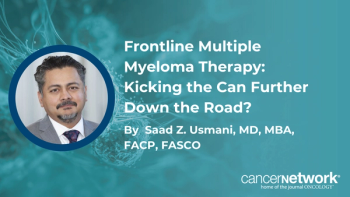
Kelley Lauren Coffman, MD, on a Study of 177Lu-DOTATATE in Well-Differentiated, High-Grade NETs
The hospitalist at Memorial Sloan Kettering Cancer Center highlighted important takeaways from a study which evaluated the use of 177Lu-DOTATATE in patients with well-differentiated, high-grade neuroendocrine tumors.
Study results presented at the 2021 American Society of Clinical Oncology (ASCO) Gastrointestinal Cancers Symposium revealed that investigators observed a meaningful disease control rate among patients with well-differentiated, high-grade neuroendocrine tumors (NETs) who were treated with 177Lu-DOTATATE (Lutathera).
In an interview with CancerNetwork®, Kelley Lauren Coffman, MD, a hospitalist at Memorial Sloan Kettering Cancer Center, explained what she believes is the greatest takeaway from the study findings.
Transcription:
The biggest takeaway point that I emphasized in my presentation at [the meeting] and I’ll emphasize now is that this treatment looks to have a meaningful benefit in these higher-grade, more advanced [NETs]. We observed about a 69% disease control rate in this population, which I think is very encouraging.
Newsletter
Stay up to date on recent advances in the multidisciplinary approach to cancer.






































